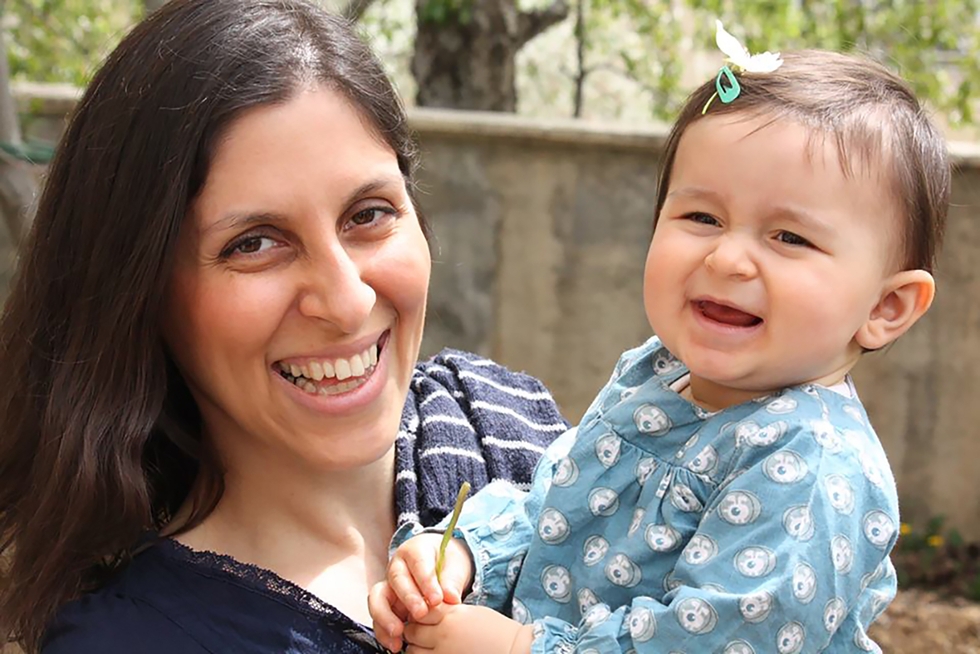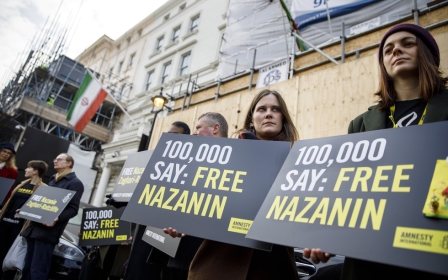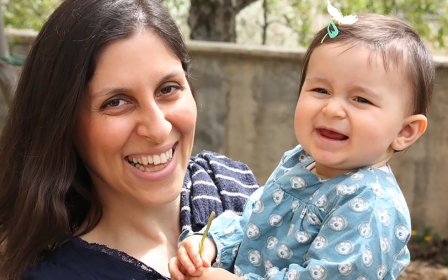Zaghari-Ratcliffe begins hunger strike in Iran over lack of medical treatment

Imprisoned British-Iranian national Nazanin Zaghari-Ratcliffe started a three-day hunger strike on Monday as her husband revealed members of the Iranian Revolutionary Guard Corps (IRGC) had asked her to spy for Iran.
Richard Ratcliffe confirmed in a press conference that Nazanin had begun her hunger strike, alongside Iranian human rights activist Narges Mohammadi, during a phone call on Monday.
During the press conference in London, he told reporters that the hunger strike was called over the denial of Nazanin's health treatment inside Iran's Evin prison.
"Nazanin told me this morning that the hunger strike has two demands," Ratcliffe told reporters in London.
"First, that Nazanin and Narges be allowed to see specialist doctors to be assessed for their different health concerns.
"Second, that the prison gives them the commitment in writing that they are allowed to receive any treatment that is prescribed by these doctors."
He added that she had been "pushed" to go on hunger strike after she was asked to spy for the Islamic Republic by the IRGC.
"Nazanin was visited in prison by two revolutionary guard interrogators [on 29 December]," Ratcliffe said.
"What really pushed her over the edge, was the second demand which was that they tried to pressure her to become a spy for Iran against the UK. Specifically, to spy on DFID (the UK's Department for International Development) to spy on international trade and development, and an organisation called Small Media, which the revolutionary guard keep trying to link her to ... but which she has no connection to."
'I call upon those responsible to free her. This is slow and cruel torture, yet one more injustice, inflicted upon her'
- Monique Villa, Thomson Reuters Foundation
Ratcliffe said that the head of the prison clinic in Evin Prison had visited both her and Mohammadi on Sunday, promising that they would both be given treatment "as long as they worked within the framework of the authorities".
Britain's Foreign Secretary Jeremy Hunt, meanwhile, summoned Iran's ambassador to the UK, to discuss Ratcliffe's health condition.
Zaghari-Ratcliffe, who worked for the Thomson Reuters Foundation as a project manager, was arrested in 2016 and was sentenced to serve a five-year jail sentence for "plotting to topple the Iranian government".
In a statement on Monday, Monique Villa, the chief executive of the Thomson Reuters Foundation, said she was "extremely shocked" to see Ratcliffe "going on hunger strike to protest inhumane treatment in Evin prison".
"The Iranian government and judiciary must act immediately, release her and allow urgent treatment before her health deteriorates any further," she said in a statement.
"I call upon those responsible to free her. This is slow and cruel torture, yet one more injustice, inflicted upon her."
Earlier this month, Ratcliffe's relatives told AFP that Iran had blocked treatment for "lumps in her breasts, for neurological care over her neck pains and numbness in her arms and legs, and seeing an outside psychiatrist".
In August, Ratcliffe was taken to hospital in Iran for suffering a series of panic attacks in prison. Her husband said the panic attacks took place after a short term release to see her family.
She fainted when she had to leave her family, after an unsuccessful appeal to extend the reunion, her husband Richard said.
New MEE newsletter: Jerusalem Dispatch
Sign up to get the latest insights and analysis on Israel-Palestine, alongside Turkey Unpacked and other MEE newsletters
Middle East Eye delivers independent and unrivalled coverage and analysis of the Middle East, North Africa and beyond. To learn more about republishing this content and the associated fees, please fill out this form. More about MEE can be found here.




